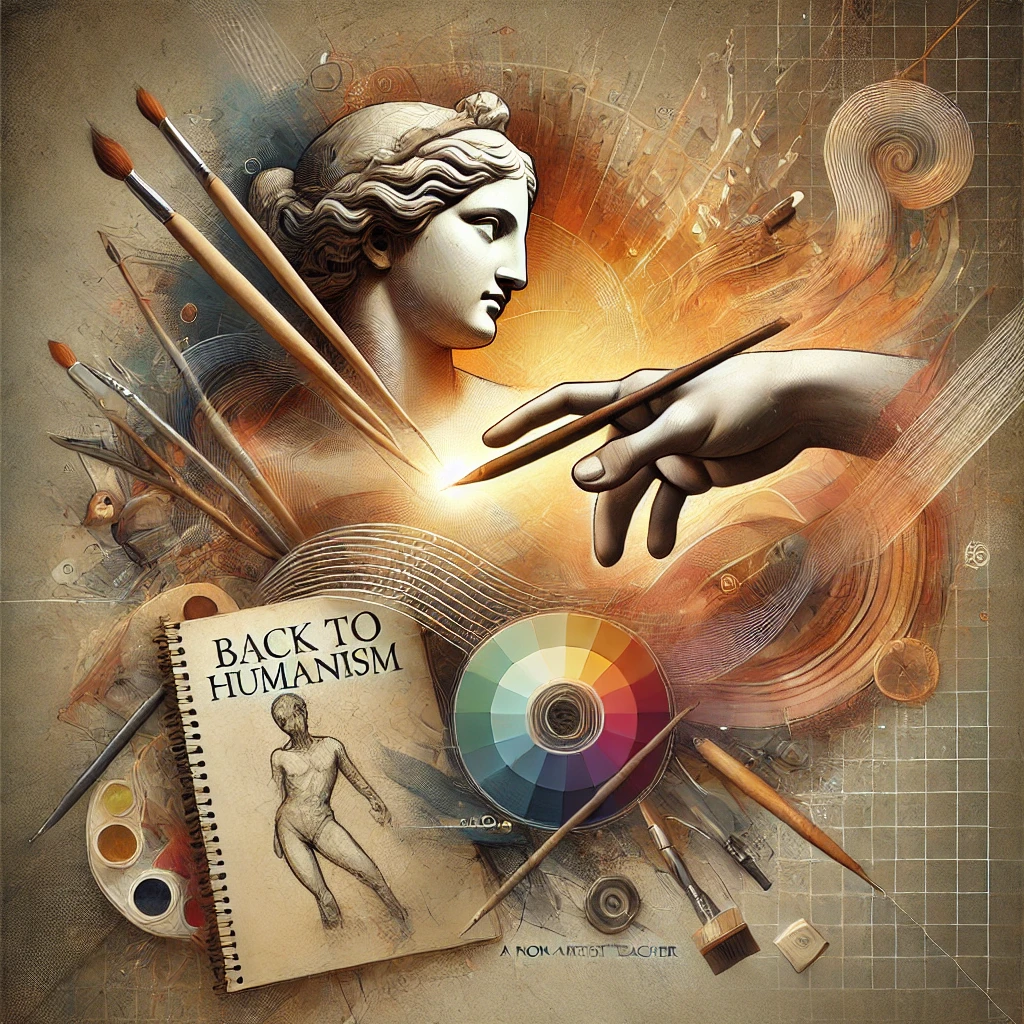De regreso al Humanismo. La investigación educativa desde el arte, una mirada desde un docente no artista
Barra lateral del artículo

Cómo citar
Altmetrics
Detalles del artículo
Se solicita a los autores que diligencien el documento de cesión de derechos de autor sobre el artículo, para que sea posible su edición, publicación y distribución en cualquier medio y modalidad: medios electrónicos, CD ROM, impresos o cualquier otra forma, con fines exclusivamente científicos, educativos y culturales
- La obra pertenece a UNIMINUTO.
- Dada la naturaleza de UNIMINUTO como Institución de Educación Superior, con un modelo universitario innovador para ofrecer Educación de alta calidad, de fácil acceso, integral y flexible; para formar profesionales altamente competentes, éticamente responsables y líderes de procesos de transformación social, EL CEDENTE ha decidido ceder los derechos patrimoniales de su OBRA, que adelante se detalla para que sea explotado por ésta
- El querer de EL CEDENTE es ceder a título gratuito los derechos patrimoniales de la OBRA a UNIMINUTO con fines académicos.
Contenido principal del artículo
Resumen
La sociedad contemporánea experimenta una de sus más profundas crisis derivada de la violencia, la contaminación y destrucción de la naturaleza y las formas de vida que en el planeta habitan, desde luego la escuela no es ajena a la fuerte crisis y pareciese que esta se encontrara detenida en el tiempo, mientras que el mundo avanza a pasos agigantados, tanto en tecnología como en dispositivos de comunicación y espacios de interacción, en algunos casos pareciese que la han remplazado y ya no tiene el exclusivo dominio del conocimiento y solo se reduce a la reproducción de saberes, siendo el maestro un simple mayordomo al servicio de un sistema en donde brilla por su ausencia el posicionamiento crítico y la investigación, es por ello que se requiere regresar al humanismo y poner de nuevo en el centro de los debates, la necesidad de repensar la vida y de transformar las formas como nos acercamos y relacionamos entre nosotros y el conocimiento, empezando por la escuela y las maneras como descubrimos nuevos posicionamientos teóricos desde otras orillas, diferentes a las tradicionales métodos cientificistas, en donde el arte y la IBA (investigación basada en artes) también aportan a la construcción del saber, más allá del dominio de una técnica.
Referencias
Acaso, M. (2013). REDUVOLUTION, Hacer la revolución en la Educación. Barcelona, España: PAIDOS.
Apud, M. (Abril de 2007). Historia de la Educación. Recuperado el 10 de Marzo de 2017, de http://marcoapud.blogspot.com.co/2007/04/la-educacion-en-el-renacimiento.html
Barone, T., & Eisner, E. (2012). Arts Based Research. California: SAGE.
Barth, J. (1957). Hacia un Nuevo Humanismo. Madrid, España: Guadarrama.
Bauman, Z. (2013). sobre la educación en un mundo líquido: conversaciones con Ricardo Mazzeo. Buenos Aires: Paidos.
Benjamín, W. (2003). La Obra de arte en la era de la reproductibilidad técnica. México, D. F.: Itaca.
Dewey, J. (2008). El arte como experiencia. Barcelona, España: Paidos.
Díez Gutiérrez, E. J. (2009). Globalización y educación crítica. Bogotá: Desde abajo.
Efland, A. (2002). Una Historia de la educación del arte. Tendencias intelectuales y sociales en la enseñanza de las artes visuales. Barcelona, España: Paidos.
Fraile, G. (1991). Historia de la Filosofía III Del Humanismo a la Ilustración (siglos XV-XVIII). Madrid, España: Biblioteca de Autores Cristianos.
Freire, P. (2015). Pedagogía de la Autonomía. Caracas, Venezuela: Laboratorio Educativo.
García Fabela, J. L. (10 de noviembre de 2023). RIIAL. Obtenido de https://www.riial.org/espacios/educom/educom_tall1ph.pdf
Giroux, H. (1996). Educación posmoderna y generación juvenil. Nueva sociedad, 148-167.
Han, B.-C. (2014). En el Enjambre. Barcelona: Herder.
Heidegger, M. (2000). Carta sobre el Humanismo. Madrid, España: Alianza.
Kemmis, A. (1998). El curriculum más allá de la teoría de la reproducción. Madrid: Morata.
Marín-Viadel, R., & Roldán, J. (2019). A/r/tografía e Investigación Educativa en artes visuales en el panorama de las metodologías de investigación en educación artística. Arte, Individuo y Sociedad, 881-895.
Michelet, C. (1855). Historia de Francia en el siglo XVI. Renacimiento. París, Francia.
Montaigne, M. d. (1997). De la educación de los hijos. México: F.C.E.
Ramos, S. (1997). Hacia un Nuevo Humanismo. México: Fondo de Cultura Económica.
Rickenman, R. (2023). La cuestión de la investigación en educación artística. Bogotá: Universidad Pedagógica Nacional.
Rodríguez Alabarracín, E. (2008). ¿Qué es el humanismo? Problemática de la formación humanística. Revista Colombiana de Humanidades, 89-104.
Sarmiento-Bonilla, M. (2021). Teatralidades de(s)coloniales: entre la formación, la creación y la política en las calles de Abya Yala. Bogotá.
Sarmiento-Bonilla, M. F. (2021). Tejiendo una apuesta pedagógica. En M. F. Sarmiento-Bonilla, Teatralidades De(s)coloniales. Propuestas (págs. 23-62). Bogotá: Editorial Poli.
Sousa, B. d. (2010). La Descolonización del Saber. Reinventar el poder. TRILCE.
Zuleta, E. (junio de 1985). La Educación, un campo de combate. (H. Suárez, Entrevistador)




